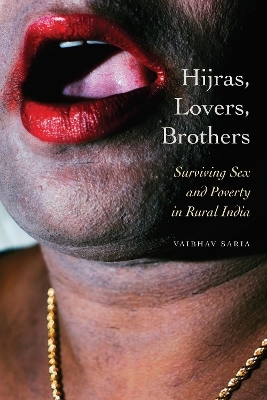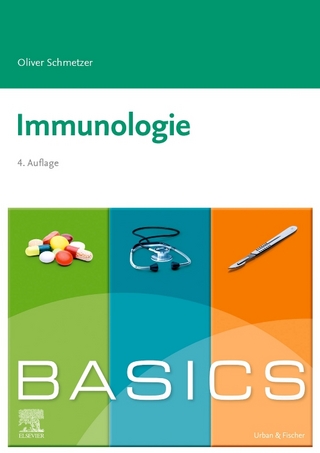
Hijras, Lovers, Brothers
Surviving Sex and Poverty in Rural India
Seiten
2021
Fordham University Press (Verlag)
978-0-8232-9471-8 (ISBN)
Fordham University Press (Verlag)
978-0-8232-9471-8 (ISBN)
This engrossing ethnography of one of South Asia’s third gendered or trans populations reveals not a group of marginalized others but a way of life composed of laughter, struggles, and desires. The book shows how hijras trouble how we read queerness, kinship, and the psyche.
Winner, 2023 Bernard S. Cohn Prize, Association for Asian Studies
Winner, 2021 Joseph W. Elder Prize in the Indian Social Sciences
Winner, 2021 Ruth Benedict Prize, Association for Queer Anthropology
Honorable Mention, 2023 Anne Bolin & Gil Herdt Book Prize, Human Sexuality & Anthropology Interest Group
Hijras, one of India’s third gendered or trans populations, have been an enduring presence in the South Asian imagination—in myth, in ritual, and in everyday life, often associated in stigmatized forms with begging and sex work. In more recent years hijras have seen a degree of political emergence as a moral presence in Indian electoral politics, and with heightened vulnerability within global health terms as a high-risk population caught within the AIDS epidemic.
Hijras, Lovers, Brothers recounts two years living with a group of hijras in rural India. In this riveting ethnography, Vaibhav Saria reveals not just a group of stigmatized or marginalized others but a way of life composed of laughter, struggles, and desires that trouble how we read queerness, kinship, and the psyche.
Against easy framings of hijras that render them marginalized, Saria shows how hijras makes the normative Indian family possible. The book also shows that particular practices of hijras, such as refusing to use condoms or comply with retroviral regimes, reflect not ignorance, irresponsibility, or illiteracy but rather a specific idiom of erotic asceticism arising in both Hindu and Islamic traditions. This idiom suffuses the densely intertwined registers of erotics, economics, and kinship that inform the everyday lives of hijras and offer a repertoire of self-fashioning beyond the secular horizons of public health or queer theory.
Engrossingly written and full of keen insights, the book moves from the small pleasures of the everyday—laughter, flirting, teasing—to impossible longings, kinship, and economies of property and substance in order to give a fuller account of trans lives and of Indian society today.
Winner, 2023 Bernard S. Cohn Prize, Association for Asian Studies
Winner, 2021 Joseph W. Elder Prize in the Indian Social Sciences
Winner, 2021 Ruth Benedict Prize, Association for Queer Anthropology
Honorable Mention, 2023 Anne Bolin & Gil Herdt Book Prize, Human Sexuality & Anthropology Interest Group
Hijras, one of India’s third gendered or trans populations, have been an enduring presence in the South Asian imagination—in myth, in ritual, and in everyday life, often associated in stigmatized forms with begging and sex work. In more recent years hijras have seen a degree of political emergence as a moral presence in Indian electoral politics, and with heightened vulnerability within global health terms as a high-risk population caught within the AIDS epidemic.
Hijras, Lovers, Brothers recounts two years living with a group of hijras in rural India. In this riveting ethnography, Vaibhav Saria reveals not just a group of stigmatized or marginalized others but a way of life composed of laughter, struggles, and desires that trouble how we read queerness, kinship, and the psyche.
Against easy framings of hijras that render them marginalized, Saria shows how hijras makes the normative Indian family possible. The book also shows that particular practices of hijras, such as refusing to use condoms or comply with retroviral regimes, reflect not ignorance, irresponsibility, or illiteracy but rather a specific idiom of erotic asceticism arising in both Hindu and Islamic traditions. This idiom suffuses the densely intertwined registers of erotics, economics, and kinship that inform the everyday lives of hijras and offer a repertoire of self-fashioning beyond the secular horizons of public health or queer theory.
Engrossingly written and full of keen insights, the book moves from the small pleasures of the everyday—laughter, flirting, teasing—to impossible longings, kinship, and economies of property and substance in order to give a fuller account of trans lives and of Indian society today.
Vaibhav Saria is Assistant Professor of Gender, Sexuality, and Women’s Studies at Simon Fraser University.
Introduction: That Limpid Liquid within Young Men | 1
1 A Prodigious Birth of Love | 25
2 In False Brothers, Evil Awakens | 62
Interlude: Standing at a Slight Angle to the Universe | 100
3 Something Rotten in the State | 106
4 Love May Transform Me | 140
5 I Have Immortal Longings in Me | 179
Acknowledgments | 197
Notes | 201
References | 235
Index | 249
| Erscheinungsdatum | 19.04.2021 |
|---|---|
| Reihe/Serie | Thinking from Elsewhere |
| Verlagsort | New York |
| Sprache | englisch |
| Maße | 152 x 229 mm |
| Themenwelt | Geisteswissenschaften ► Religion / Theologie ► Hinduismus |
| Medizin / Pharmazie ► Medizinische Fachgebiete | |
| Studium ► Querschnittsbereiche ► Infektiologie / Immunologie | |
| ISBN-10 | 0-8232-9471-4 / 0823294714 |
| ISBN-13 | 978-0-8232-9471-8 / 9780823294718 |
| Zustand | Neuware |
| Haben Sie eine Frage zum Produkt? |
Mehr entdecken
aus dem Bereich
aus dem Bereich
Buch | Softcover (2023)
Lehmanns Media (Verlag)
19,95 €


